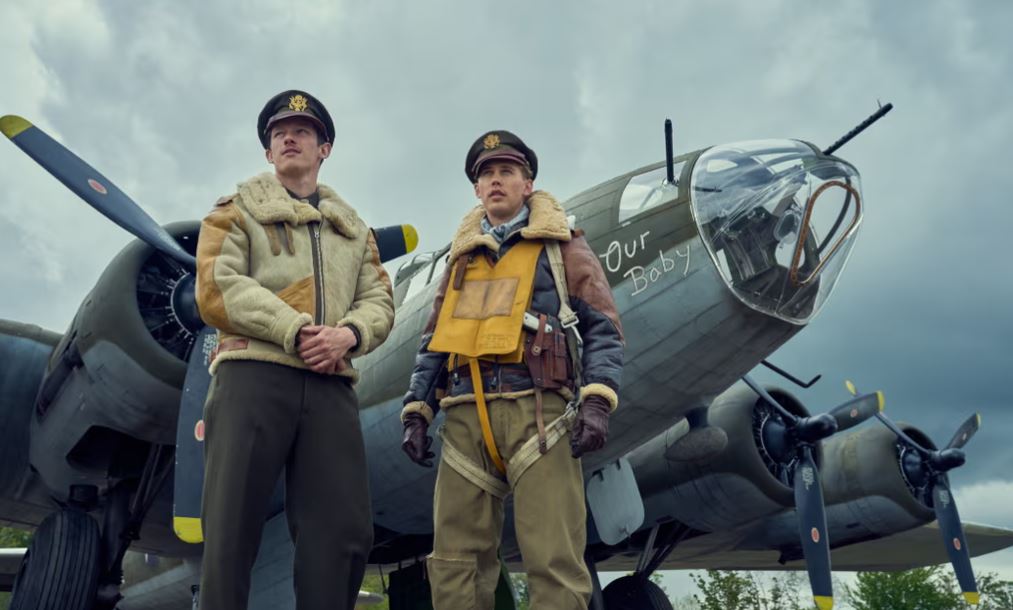
“Masters of the Air” has been one of the most anticipated shows of the past year, considering its star-studded cast and the show’s history. The show, which premiered on January 26, follows the story of the American men of the 100th bomb group as they undertake perilous aerial missions over the course of nine episodes.
Excecutive produced by Steven Spielberg, Tom Hanks, and Gary Goetzman, “Masters of the Air,” a show a decade in the making, follows the widely acclaimed and hugely successful “Band of Brothers” (2001), which was the most expensive TV miniseries ever made at the time, and its companion show, 2010’s “The Pacific.”.
- “Band of Brothers” Courtesy of HBO
- “The Pacific” Courtesy of HBO
All three shows are work steeped in history. “Masters of The Air” is Based on Donald L. Miller’s 2007 book, “Masters of the Air: America’s Bomber Boys Who Fought the Air War Against Nazi Germany,” the limited series depicts World War II through the eyes of the pilots, navigators, and crew of the Air Force’s 100th Bomb Group known as the Bloody Hundredth. Much like “Band of Brothers” saw the war from Easy Company’s perspective on the Western Front, and “The Pacific” traced the 1st Marine Division across the Pacific Ocean. All three series form somewhat of a WWII TV trilogy.
Narrated by navigator Major Harry Crosby (Anthony Boyle), the show focuses largely on a core group of real-life WWII airmen based in Europe – pilots and firm friends Gale “Buck” Cleven (Austin Butler) and John “Bucky” Egan (Callum Turner) and Curtis Biddick (Barry Keoghan). Later on in the series the show does feature other real-life heroes from outside the Bloody Hundredth (including members of the 332nd Fighter Group, who are far more famously known as the Red Tails, or the Tuskegee Airmen).
The first two episodes lay the foundation for what is to come in the series, with episode 1 introducing us to the key players and giving us a sense of the show’s general tone. The storyline begins with the 100th’s first mission, which takes them over Germany, but it does not go as planned, and it ends in a significant loss. Episode 2 shows the fallout of their first mission. After a successful second mission in the episode, with one minor hiccup, we see more of the human side of these characters than simply the soldier side. We see the airmen enjoying some much-needed fun and revelry.
There is no doubt that the show is at its most thrilling in the skies. The audience watches the story unfold from the view of the cockpits of the B-17s as the planes must outmaneuver enemy fighters, watch as their surrounding planes are either gunned down or bombed, and face a multitude of different challenges in the air, such as bouts of airsickness and frostbite. The visual effects do a good job of translating both the violence and sheer velocity of the WWII air-to-air action to the screen.
During periods of quiet when these pilots are either at their base or out celebrating, the show tackles how these men cope with what they have been through by turning to drinking and women. What “Masters of the Air” manages to accomplish is deliver an immersive experience right throughout the story. If there is a plane going down, you will feel that shock; if your favorite characters are being shot at, you will feel that stress; if there is a loss on the show, you will feel that pain. The emotional extremes of both the chaos and the calm are explored, as well as the toll it takes on the characters.
The show does not shy away from the graphic details of what happened on those planes; by showing us what happens through the eyes of these airmen, there is a new level of intensity that is added to the story. Similar to both miniseries before it, the showrunners allowed, or more like forced, the audience to experience the intensity and brutality of wartime instead of simply pulling wool over our eyes. “Masters of the Air” feels more like one long blockbuster than a series, which is something “Band of Brothers” was far better at. However, the writing in this series is still as great as in its sister shows. On top of all the emotion, drama, and action, “Masters of the Air” also delivers large helpings of surprise and loss. So don’t get too attached to anyone on the show just yet.
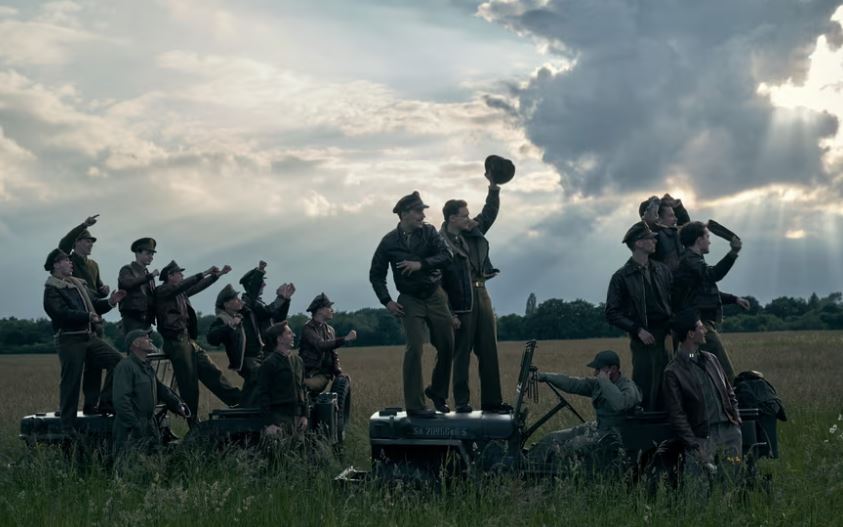
Courtesy of Apple TV+
The entire show is simply elevated by the incredible performances of the cast. Austin Butler plays the soft-spoken but assertive Major Buck Cleven. With an accent not that different from that from his Elvis performance, with a slight hint of country. Butler delivers a brilliant and emotional performance. He somehow manages to make his character not just incredibly charming, but he also has a caring sense about him that comes across throughout the show. He blends in effortlessly in the ’40s setting.
Callum Turner delivers a similarly impressive performance as Major Bucky Egan, a humorous, fun-loving individual with a heavy heart who could not be more different from his best friend Buck. With Turner’s thick American accent, you wouldn’t believe he was indeed a British actor. Indeed, the same could be said about Irish actor Barry Keoghan, who plays Lt. Curtis Biddick. Both characters are somewhat of a refreshing comedic couple, but. Keoghan, who has taken on some intense roles in the past, once again showcases his acting chops in every way in this role. Both when it comes to his vocal performance and his physicality. Anthony Boyle plays navigator Harry Crosby, whose panic-stricken initial moments in the series make him one of the easiest characters to relate to. Each actor greatly contributes to making this series the best it can be.
The thing about a show like this is that one must be able to watch and appreciate every aspect of a war epic like this. Such as the cinematography, the set design, and the music, which was composed by Blake Neely, This isn’t your average go-to binge-watching show. No, this is hard-hitting, emotional, and intense drama. Drama, as any and every war film and TV show does, can elicit the most powerful of emotions from you and make you feel connected to the past.
Watch the trailer here:
The first two episodes of “Masters of the Air” are now streaming on Apple TV+. Subsequent episodes will arrive every Friday until March 15, 2024.
Fangirl and Writer with a huge passion for entertainment.







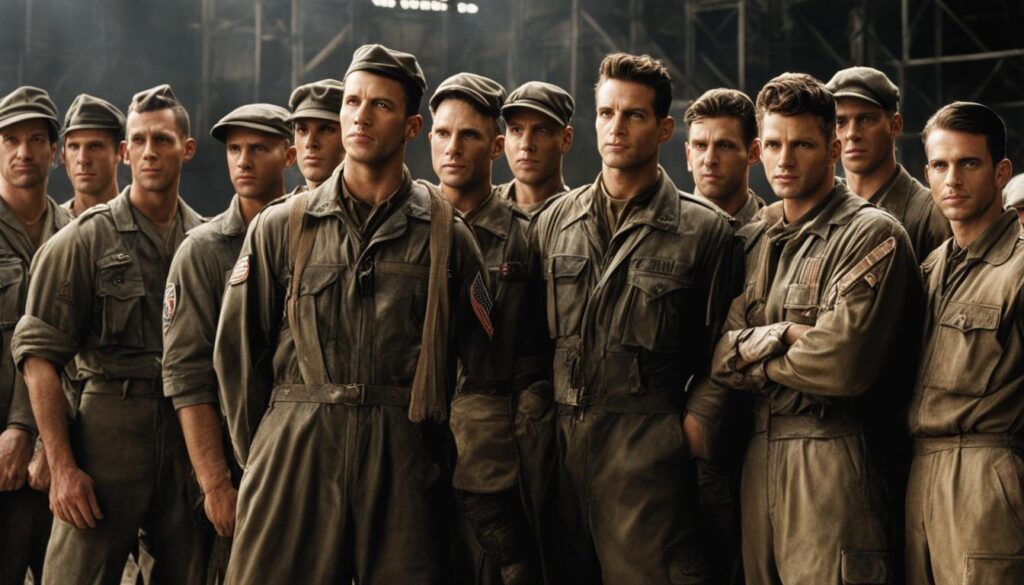
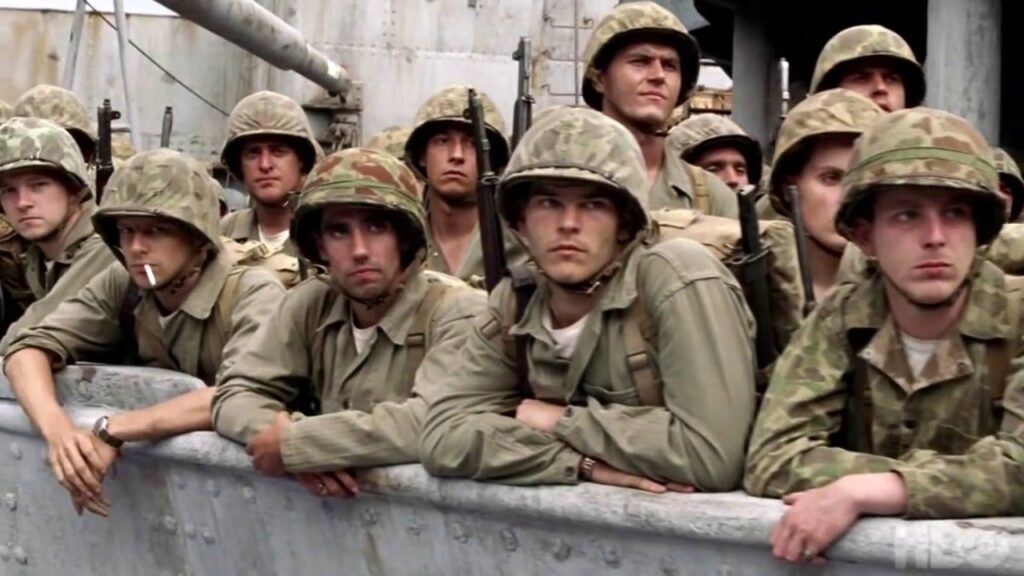


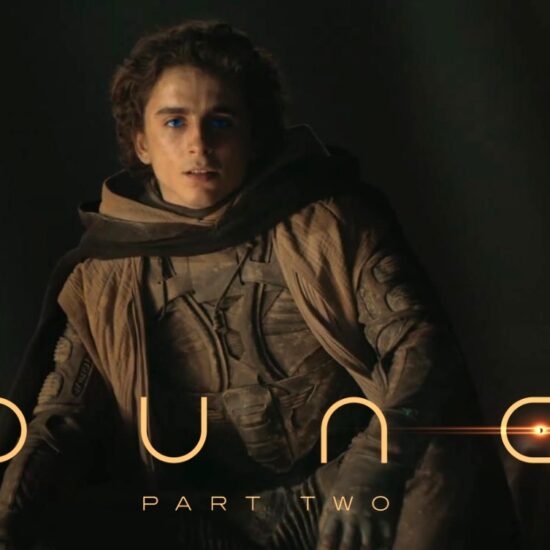




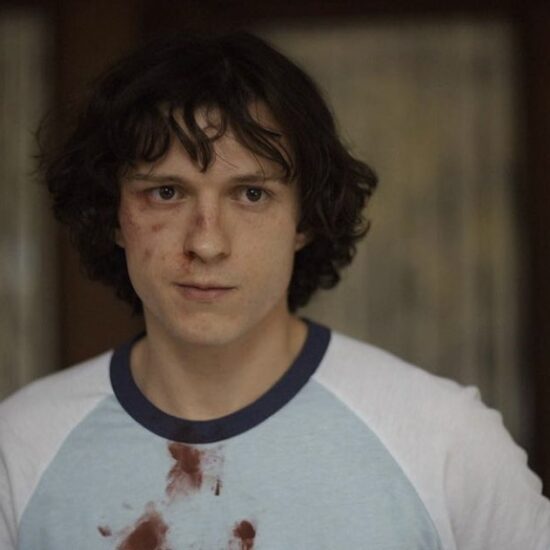
JJ Sprowl / February 1, 2024
Great review; thank you! Love the authenticity, from planes, sets and battle flames — sad but true — to the achingly good and sometimes humorous cast performances. The actors took seriously that they were playing real people, everyday heroes in a very bad war. For instance, even though he’s been frequently memed (usually lightheartedly) about vocalizations after singing and sounding like Elvis from his award-winning biopic role, Austin Butler still played true to who Maj. Buck Cleven was, where he was from (WY), and how he spoke.
From the outset Austin Butler, in the Masters Of The Air scene 1 at table with Isabel May and other cast members, nails Cleven’s WY dialect (drawl mixed with some sped-up words & dropped consonants, and a bit of country flavor from the wide-open cowboy spaces). Southern accents resemble WY with its TX, GA, TN settlers. I liked Austin Butler /Elvis/TN voice, but it’s gone for other deep-voiced roles now that he’s a grown man in his early 30’s. I look forward to watching AB, Callum Turner, Barry Keoghan, and the rest of the cast (including Bel Powley) we’ll see in upcoming factually memorable episodes.
/